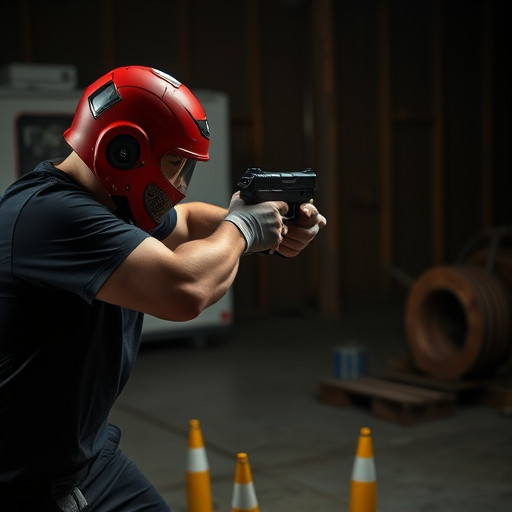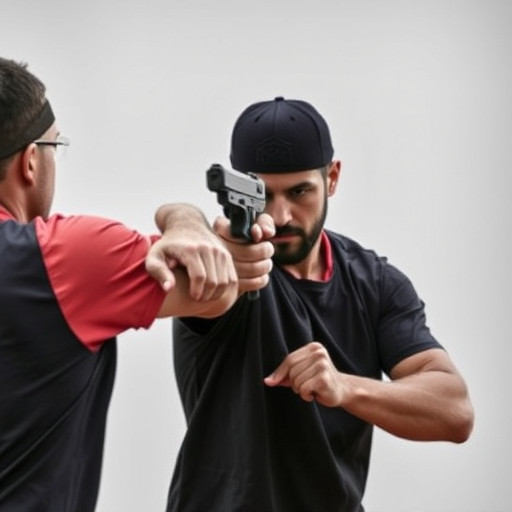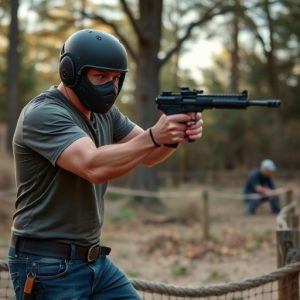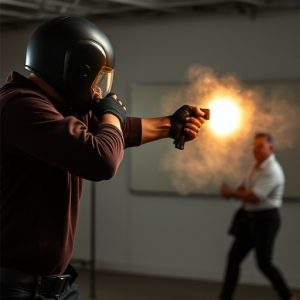Stun Gun Laws: Navigating State Restrictions for Senior Safety
Non-lethal self-defense weapons, like stun guns or Tasers, provide seniors with a safe way to protec…….
Non-lethal self-defense weapons, like stun guns or Tasers, provide seniors with a safe way to protect themselves without causing permanent harm. However, due to varying state laws in the US, it's crucial for seniors considering these options to understand local regulations regarding age requirements, permit needs, and training certifications. Thorough research and consultation with local authorities are essential steps to ensure compliance and personal safety when exploring non-lethal self-defense weapons for seniors.
“Uncover the legal landscape surrounding stun guns in the US, focusing on state-specific restrictions. This comprehensive guide aims to empower individuals, especially seniors seeking non-lethal self-defense options.
‘Understanding Non-Lethal Self-Defense Weapons’ delves into the capabilities and safety measures of these devices. ‘Legal Landscape’ provides an insightful overview of state-by-state regulations, ensuring users stay informed. Furthermore, ‘Senior Safety and Stun Guns’ explores how these weapons can offer protection without legal repercussions for the elderly.”
- Understanding Non-Lethal Self-Defense Weapons: A Comprehensive Overview
- Legal Landscape: State-by-State Restrictions on Stun Guns
- Senior Safety and Stun Guns: Navigating Legalities for Effective Protection
Understanding Non-Lethal Self-Defense Weapons: A Comprehensive Overview

Non-lethal self-defense weapons, also known as stun guns or Tasers, are designed to incapacitate an assailant without causing permanent harm. These devices emit an electric current that disrupts muscle control, providing a temporary defense for individuals in potentially dangerous situations. For seniors, who may have concerns about physical ability or mobility, non-lethal self-defense weapons offer a unique solution. They provide peace of mind and a means to deter potential attackers without the risk of severe injury.
Understanding the legal landscape surrounding stun guns is crucial, as restrictions vary greatly from state to state. Some states permit their use by anyone over 18 for self-defense, while others have stringent requirements such as concealed carry permits or specific training certifications. Seniors considering non-lethal self-defense options should research their state’s laws thoroughly and consult with local authorities to ensure compliance and personal safety.
Legal Landscape: State-by-State Restrictions on Stun Guns

In the United States, the legal status of stun guns varies significantly from state to state, creating a complex landscape for individuals considering them as non-lethal self-defense weapons. While some states have relatively liberal laws allowing open carry or concealed possession of stun guns with minimal restrictions, others impose stringent regulations or outright ban their use. This variability underscores the importance of understanding local laws before acquiring such devices.
States like Texas and Florida are known for their more permissive policies, enabling residents to carry stun guns openly or concealed without a permit. In contrast, states like California and New York have stricter measures, often requiring permits and specific qualifications for ownership. For seniors considering non-lethal self-defense weapons as an option for personal safety, navigating these state-by-state restrictions is crucial. Understanding the legal framework ensures compliance with local laws while providing peace of mind during the decision-making process.
Senior Safety and Stun Guns: Navigating Legalities for Effective Protection

For senior citizens, ensuring safety is a top priority, especially as mobility and independence can wane with age. Non-lethal self-defense weapons like stun guns offer a layer of protection that can provide peace of mind for seniors living alone or navigating unfamiliar environments. These devices are designed to incapacitate an attacker temporarily without causing permanent harm, making them a popular choice for personal safety.
Navigating the legal landscape surrounding stun guns is crucial for senior users. State laws vary widely regarding who can possess and carry these non-lethal weapons. Some states allow seniors to legally own stun guns with minimal restrictions, while others may have stringent requirements or outright prohibit their use. Understanding local legislation is essential to ensure compliance and maximize the effectiveness of stun guns as a safety measure for seniors.
In conclusion, understanding the legal restrictions surrounding stun guns is paramount, especially for those seeking non-lethal self-defense options, particularly among seniors. The diverse state-by-state regulations highlight the need for individuals to thoroughly research local laws before acquiring a stun gun. By staying informed and navigating these legalities, seniors can ensure they have access to effective protection while adhering to the law, ultimately promoting safety and peace of mind.


